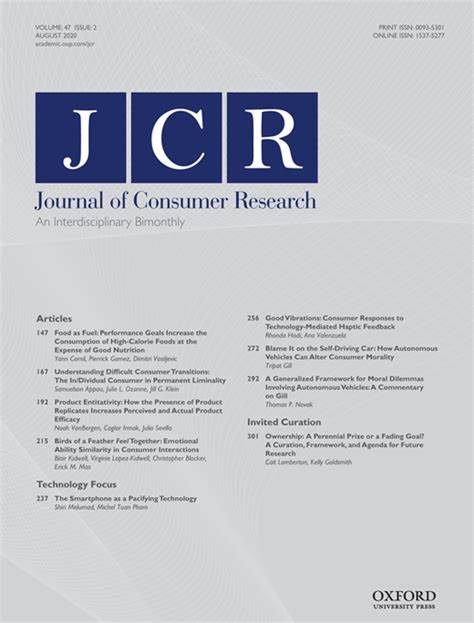天平的翻转:当消费者得到评价时,关于共享经济平台的心理契约和口碑
IF 6.4
1区 管理学
Q1 BUSINESS
引用次数: 3
摘要
共享经济的对等部门依赖于声誉系统,消费者和供应商通过该系统相互审查。先前的研究考察了消费者的评论对供应商和公司的影响,而这项研究首次考察了对消费者的评估。在一项试点和七项研究(五项预先注册)中,使用多种实际行为和共享环境,结果表明,同行供应商对消费者的负面评价会导致对该平台的负面口碑。根据心理契约理论,研究表明,这种影响是由消费者感知到的平台背叛所介导的。确定了两组主持人。第一组规定,消费者与平台的心理契约被破坏是造成这种影响的基础。在第二组中,可能导致违约或多或少后果的平台政策会加剧或减轻消费者的反应。具体而言,将审查保密(相对于公开)并提供恢复正义的机会(回应、报复和争议)会削弱审查价对背叛和NWOM的影响。讨论了对共享经济平台管理者和消费者的启示。本文章由计算机程序翻译,如有差异,请以英文原文为准。
A Turn of the Tables: Psychological Contracts and Word of Mouth about Sharing Economy Platforms When Consumers Get Reviewed
The Peer-to-Peer sector of the sharing economy relies on reputation systems through which consumers and providers review each other. Whereas prior research has examined the effects of reviews by consumers on providers and firms, this research examines, for the first time, a turn of the tables in which consumers are evaluated. Across a pilot and seven studies (five preregistered), using multiple actual behaviors and sharing contexts, results reveal that a negative review of the consumer from the peer provider leads to negative word of mouth (NWOM) about the platform. Drawing from psychological contract theory, the research demonstrates that this effect is mediated by consumers’ perceived betrayal by the platform. Two sets of moderators are identified. The first set establishes that a breach of consumers’ psychological contract with the platform underlies the effect. In the second set, platform policies that may render a breach more or less consequential intensify or mitigate consumer reactions. Specifically, making the review private (vs. public) and providing opportunities for justice restoration (response, revenge, and dispute) attenuate the effect of review valence on betrayal and NWOM. Implications for sharing economy platform managers and consumers are discussed.
求助全文
通过发布文献求助,成功后即可免费获取论文全文。
去求助
来源期刊

Journal of Consumer Research
BUSINESS-
CiteScore
12.00
自引率
9.70%
发文量
53
期刊介绍:
Journal of Consumer Research, established in 1974, is a reputable journal that publishes high-quality empirical, theoretical, and methodological papers on a wide range of consumer research topics. The primary objective of JCR is to contribute to the advancement of understanding consumer behavior and the practice of consumer research.
To be considered for publication in JCR, a paper must make a significant contribution to the existing body of knowledge in consumer research. It should aim to build upon, deepen, or challenge previous studies in the field of consumption, while providing both conceptual and empirical evidence to support its findings.
JCR prioritizes multidisciplinary perspectives, encouraging contributions from various disciplines, methodological approaches, theoretical frameworks, and substantive problem areas. The journal aims to cater to a diverse readership base by welcoming articles derived from different orientations and paradigms.
Overall, JCR is a valuable platform for scholars and researchers to share their work and contribute to the advancement of consumer research.
 求助内容:
求助内容: 应助结果提醒方式:
应助结果提醒方式:


